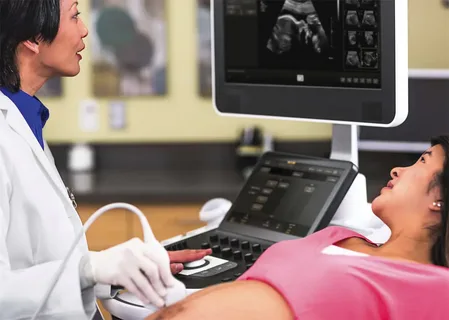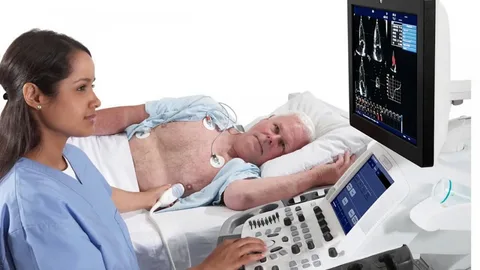In a world where heart disease remains a leading cause of death, the importance of early detection through cardiac diagnostics cannot be overstated. Sydney, a city renowned for its quality healthcare, has been at the forefront of offering comprehensive cardiac diagnostic services. Cardiac Diagnostics Sydney allows individuals to access state-of-the-art diagnostic tools to identify various heart conditions before they escalate into more severe problems.
Understanding the Importance of Cardiac Diagnostics
Cardiac diagnostics are instrumental in the preemptive identification and management of heart-related conditions. These diagnostic measures are designed to glean detailed insights regarding the functionality and structure of the heart, thereby enabling medical professionals to accurately diagnose a range of heart conditions, including coronary artery disease, myocardial infarctions, arrhythmias, and congestive heart failure. The early detection facilitated by these diagnostics can significantly impact patient outcomes, allowing for timely interventions that may halt the progression of heart disease.
Moreover, the information garnered from cardiac diagnostics aids in formulating personalised treatment plans tailored to address the specific needs and conditions of the patient. This approach enhances the efficacy of treatment strategies and contributes to a more favourable prognosis, improving the quality of life for those affected by heart conditions. In a city like Sydney, where access to advanced cardiac diagnostic tools and specialised healthcare professionals is readily available, the potential for early diagnosis and effective management of heart diseases is notably high.
The Spectrum of Cardiac Diagnostic Tests Available in Sydney
Sydney’s healthcare system is equipped with a wide range of cardiac diagnostic tests, catering to the diverse needs of individuals seeking insights into their heart health. Among the non-invasive procedures offered, electrocardiograms (ECGs) stand out for their ability to record the heart’s electrical activity, providing valuable information about heart rate and rhythm. On the other hand, Echocardiograms utilise ultrasound waves to create images of the heart, enabling the assessment of the heart’s structures and motion. Exercise stress tests, which measure the heart’s performance and capacity during physical activity, are also commonly employed to detect coronary artery disease or to ascertain the severity of this condition in those already diagnosed.
Sydney’s commitment to heart health is further evidenced by its adoption of cutting-edge diagnostic tools and methodologies. This comprehensive array of cardiac diagnostic tests underscores the city’s dedication to providing accurate diagnoses, thereby enabling timely and effective treatment plans for those affected by heart-related ailments.
Choosing the Right Facility for Cardiac Diagnostics
Identifying an appropriate healthcare provider for cardiac diagnostics is a significant consideration for individuals pursuing heart health evaluations. Facilities distinguished by their integration of advanced diagnostic technology, alongside a team of experienced cardiac specialists, mark the benchmarks for superior patient care. It is beneficial for prospective patients to seek out healthcare establishments that prioritise continuous professional development and implementing the latest diagnostic approaches. These qualities indicate a provider’s commitment to delivering the highest standard of care.
Additionally, healthcare facilities offering a holistic approach to heart health, encompassing diagnostic and therapeutic services, provide a more comprehensive care model. This ensures that patients not only receive accurate diagnoses but also have access to tailored treatment and management plans. The choice of facility is thus a pivotal step in achieving optimal heart health, underscoring the need for careful consideration in selecting a provider that aligns with these critical criteria.
Preparing for a Cardiac Diagnostic Test
When individuals are scheduled for a cardiac diagnostic test in Sydney, healthcare providers may advise them to take certain preparatory measures to ensure accurate results. These preparations often hinge on the nature of the test being conducted. Staining from caffeine and specific medications is recommended, as these substances can affect heart rate and blood pressure, potentially skewing test outcomes.
Comfort is another consideration for individuals undergoing cardiac diagnostics. Wearing loose, comfortable clothing can facilitate ease of movement and access for the healthcare professionals conducting the test, especially in tests involving physical activity, such as exercise stress tests. Additionally, it is generally advisable to refrain from strenuous exercise immediately before the appointment to avoid any temporary effects on heart function that could impact the results.
Healthcare providers are poised to offer comprehensive guidance tailored to the specific requirements of each cardiac diagnostic procedure. This ensures that individuals are well informed and prepared for their tests, supporting the accuracy and effectiveness of the diagnostic process. Through these preparations, healthcare professionals in Sydney aim to create an environment conducive to obtaining precise diagnostic information, which is critical for the subsequent steps in managing and treating heart conditions.
What to Expect During and After the Test
During a cardiac diagnostic test in Sydney, individuals are likely to experience minimal discomfort, as most of these tests are designed to be non-invasive and are usually pain-free. Technologies such as electrocardiograms (ECGs) and echocardiograms, widely utilised in the process, do not involve any pain for the patient. For certain tests, such as the exercise stress test, a degree of physical effort is required, which might cause temporary fatigue or breathlessness, which is generally well-tolerated by most individuals.
After completing a cardiac diagnostic test, the procedure for analysing and discussing results involves a thorough review by a cardiac specialist. These experts meticulously assess the data collected during the test to identify any abnormalities or indications of heart-related issues. The findings from the diagnostic test are then communicated to the individual in a follow-up consultation. During this session, the specialist will explain the results in detail, clarify any detected conditions, and discuss potential implications for the individual’s health.
Based on these results, the specialist may recommend a course of action, which could include further diagnostic evaluations, the initiation of specific treatments, or lifestyle adjustments to address or mitigate the identified condition. This stage is crucial as it sets the direction for the subsequent management of the individual’s heart health, aiming to optimise outcomes and enhance overall well-being.
The Role of Lifestyle in Supporting Cardiac Health
The influence of lifestyle on cardiac health is profound and multifaceted, offering individuals significant control over their heart health. Integrating healthy lifestyle choices can markedly augment the benefits of cardiac diagnostics, ensuring the longevity and functionality of the heart. Below are five crucial aspects of lifestyle that support cardiac health:
Regular Physical Activity:
Engaging in consistent exercise helps improve heart muscle strength, enhances blood circulation, and assists in maintaining a healthy weight, all critical factors in reducing heart disease risk.
Balanced Diet:
Consuming a diet rich in fruits, vegetables, lean proteins, and whole grains while limiting saturated fats, cholesterol, and sugars can protect against heart disease. Incorporating heart-healthy foods supports overall wellness and aids in the management of blood pressure and cholesterol levels.
Smoking Cessation:
Tobacco use is a significant risk factor for developing heart disease. Quitting smoking can dramatically reduce one’s risk of heart disease and improve overall heart function.
Stress Management:
Chronic stress has been linked to an increased risk of heart disease. Techniques such as mindfulness, meditation, and regular physical activity can help manage stress levels, promoting heart health.
Moderate Alcohol Consumption:
Excessive alcohol intake can lead to a host of heart-related issues, including high blood pressure and irregular heartbeats. Moderation is key, as is seeking professional advice on safe consumption levels.
 Innovations in Cardiac Diagnostics Sydney
Innovations in Cardiac Diagnostics Sydney
The landscape of Cardiac Diagnostics Sydney is undergoing a remarkable transformation, propelled by a series of groundbreaking innovations. Among these, high-definition imaging techniques stand out for their capacity to deliver unprecedented clarity and detail in heart visualisations. This enhancement in imaging technology facilitates a more accurate and comprehensive understanding of cardiac health, laying the groundwork for highly targeted treatment strategies.
Another notable advancement in Sydney’s cardiac diagnostic sphere is the integration of wearable technology. This modern approach to continuous cardiac monitoring represents a significant shift towards more proactive and preventive cardiac care. Individuals can now benefit from real-time heart health tracking, which offers valuable insights into cardiac performance over extended periods. This technology enhances the ability to detect potential cardiac issues early and empowers individuals with actionable data to inform lifestyle and treatment decisions.
These innovations collectively signify a pivotal movement towards more personalised, accurate, and effective cardiac diagnostics. Sydney’s commitment to embracing and integrating these advanced technologies underscores the city’s dedication to improving cardiac care outcomes and fostering a future where heart health can be more effectively managed and preserved.
Navigating the Cost of Cardiac Diagnostics
The financial aspect of accessing cardiac diagnostic services in Sydney represents a complex landscape, characterised by a spectrum of costs that are influenced by the type of diagnostic test being conducted and the choice of healthcare facility. Whilst the public healthcare system may provide some coverage for certain cardiac diagnostics, delineating which services are fully subsidised and those requiring additional out-of-pocket expenditure necessitates thorough inquiry.
Private health insurance holders may find that their policies offer partial or full coverage for various diagnostic procedures, yet this is contingent upon the specifics of their plans. It is incumbent upon patients to engage in discussions with healthcare providers to ascertain the precise cost implications of their diagnostic tests. Furthermore, patients are advised to consult with their insurance providers to gain clarity on the extent of coverage available under their policies.
When tests are not fully covered by insurance or public health, healthcare facilities may offer various financing options or payment plans to alleviate the financial burden on patients. Individuals must explore all available avenues for financial assistance, ensuring they are well-informed of the potential costs involved. This proactive approach enables patients to navigate the financial dimensions of cardiac diagnostics more easily, ultimately facilitating access to essential diagnostic services critical for heart health management and care in Sydney.
FAQ’s
What types of cardiac diagnostic tests are most commonly performed in Sydney?
Electrocardiograms (ECGs), echocardiograms, exercise stress tests, cardiac CT scans, and cardiac MRIs are among the most frequently utilised tests, offering comprehensive insights into heart health.
How can one prepare for a cardiac diagnostic test?
Preparation varies by test but generally includes:
- Abstaining from caffeine and certain medications.
- Fasting for specific periods.
- Wearing comfortable clothing facilitates ease during the procedure.
Are Cardiac Diagnostics Sydney tests in Sydney covered by the public health system or private insurance?
Coverage varies; the public health system may subsidise some tests, Cardiac Diagnostics Sydney offer partial or full coverage. Patients must consult their healthcare provider and insurance company for detailed information.
What innovations are enhancing cardiac diagnostics in Sydney?
Advancements such as high-definition imaging, 3D modelling technologies, and wearable technology for continuous monitoring are revolutionising cardiac diagnostics, providing clearer, more detailed insights into heart health.
How can lifestyle changes support the outcomes of cardiac diagnostics?
Incorporating regular physical activity, a balanced diet, stress management, and avoiding tobacco products are pivotal lifestyle adjustments that complement diagnostic findings and aid in managing heart health.
Conclusion
In summary, Cardiac Diagnostics Sydney represents a comprehensive and advanced field crucial for the early detection, diagnosis, and management of heart-related conditions. The city’s embrace of state-of-the-art diagnostic technologies and methodologies and a commitment to patient-centred care underscores Sydney’s position as a leading centre for cardiac health. Individuals can access unparalleled resources for safeguarding their heart health through innovative diagnostic tools, skilled healthcare professionals, and a focus on lifestyle modifications.
| Related Business Listings |
| Contact Directory |
| Local Business Profiles |



